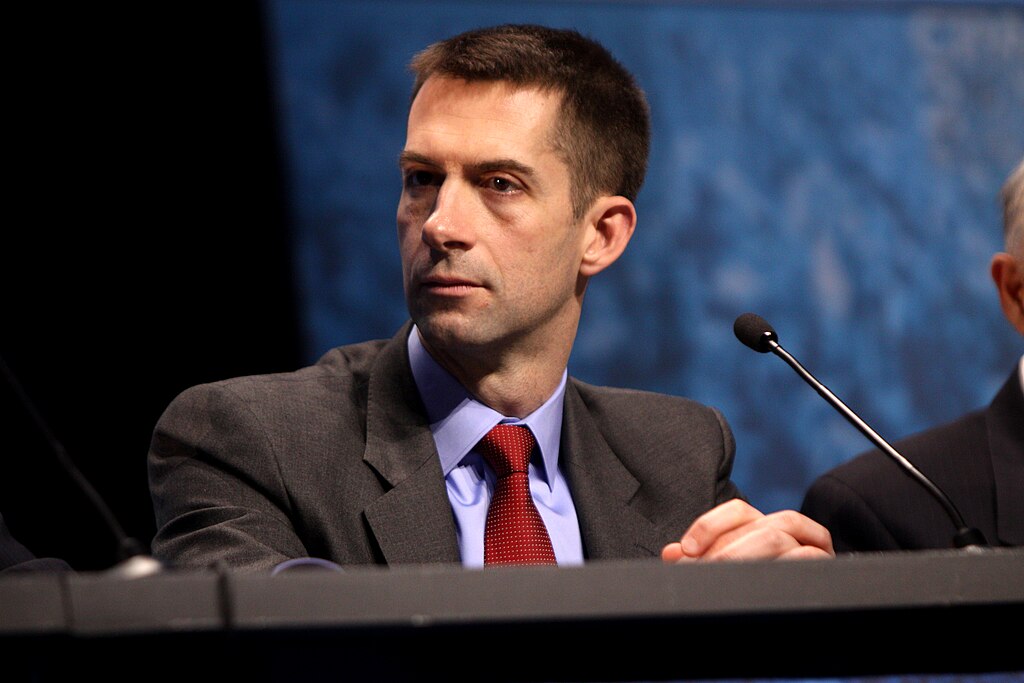Sen. Tom Cotton (R-Ark.) is reportedly positioned to assume the chairmanship of the Senate Intelligence Committee, according to sources close to congressional leadership. The move would place the staunch conservative and outspoken national security hawk at the helm of one of the most sensitive committees in the Senate, overseeing critical intelligence and national security matters.
Cotton’s alleged appointment is anticipated to mark a significant shift in the Intelligence Committee’s approach to security issues, with an emphasis on aggressive oversight and accountability for U.S. intelligence agencies. Known for his hawkish views on national security and tough stance on foreign adversaries, Cotton has been vocal about the need for stronger U.S. defenses and transparency within the intelligence community.
A New Era of National Security Scrutiny
An aide familiar with the decision told CNN that Cotton’s potential leadership represents a "new era" of national security oversight. “Senator Cotton will ensure that we get the answers the American people deserve about the threats facing our nation,” the aide stated. “He’s not interested in political games — he’s focused on results.”
The Intelligence Committee’s chairmanship comes with significant influence over the country’s intelligence agencies, including the CIA, NSA, and FBI. The chair is responsible for setting the agenda for investigations, hearings, and oversight functions, making Cotton’s rumored ascension a key moment for those tracking the future direction of U.S. intelligence policies.
Critics, however, are concerned about Cotton’s hardline approach. “Senator Cotton’s record shows a preference for militaristic solutions and an aggressive stance that could alienate our allies and complicate diplomatic efforts,” a Democratic aide said. Some Democrats worry Cotton’s leadership may lean heavily toward prioritizing national defense over privacy concerns and civil liberties.
Focus on Transparency and Accountability
Cotton has long championed transparency within government agencies, frequently calling for public accountability. He has promised, if confirmed as chair, to hold intelligence agencies accountable for perceived failures and to closely examine intelligence operations. Cotton’s priorities may include intensified scrutiny of intelligence surrounding foreign threats, particularly from adversaries like China, Russia, and Iran.
“He’s going to hold everyone accountable — no exceptions,” said a Republican aide familiar with Cotton’s approach. “He’s especially keen to investigate any lapses in intelligence gathering and analysis that could jeopardize American security.”
Controversy and Opposition
Cotton’s potential leadership has already sparked backlash among some civil liberties advocates, who fear his approach may threaten individual rights. “Senator Cotton’s focus on security at all costs is concerning,” said a spokesperson for the American Civil Liberties Union. “We urge him to remember that transparency and oversight must not come at the expense of citizens’ constitutional rights.”
Cotton’s previous positions on national security matters have been controversial. His critics argue that his hawkish tendencies may lead to overreach, while his supporters see him as a strong defender of American security interests.
Cotton’s Vision for the Committee
Despite the concerns, Cotton’s supporters say his chairmanship will bring much-needed reform to the Intelligence Committee. “Senator Cotton is committed to ensuring that our intelligence agencies operate with integrity and a clear focus on the threats facing our country,” said a Republican colleague. “He’ll make sure our enemies know we’re watching.”
The rumored appointment of Sen. Tom Cotton to the chair of the Senate Intelligence Committee promises a potentially transformative period for U.S. intelligence policy, with a focus on transparency, accountability, and a tough stance on adversaries. While the decision has yet to be finalized, Cotton’s supporters and detractors are already weighing in, setting the stage for a contentious term.



 U.S. to Begin Paying UN Dues as Financial Crisis Spurs Push for Reforms
U.S. to Begin Paying UN Dues as Financial Crisis Spurs Push for Reforms  Trump Lifts 25% Tariff on Indian Goods in Strategic U.S.–India Trade and Energy Deal
Trump Lifts 25% Tariff on Indian Goods in Strategic U.S.–India Trade and Energy Deal  Trump’s Inflation Claims Clash With Voters’ Cost-of-Living Reality
Trump’s Inflation Claims Clash With Voters’ Cost-of-Living Reality  TrumpRx Website Launches to Offer Discounted Prescription Drugs for Cash-Paying Americans
TrumpRx Website Launches to Offer Discounted Prescription Drugs for Cash-Paying Americans  India–U.S. Interim Trade Pact Cuts Auto Tariffs but Leaves Tesla Out
India–U.S. Interim Trade Pact Cuts Auto Tariffs but Leaves Tesla Out  Trump Backs Nexstar–Tegna Merger Amid Shifting U.S. Media Landscape
Trump Backs Nexstar–Tegna Merger Amid Shifting U.S. Media Landscape  Trump Signs Executive Order Threatening 25% Tariffs on Countries Trading With Iran
Trump Signs Executive Order Threatening 25% Tariffs on Countries Trading With Iran  Nighttime Shelling Causes Serious Damage in Russia’s Belgorod Region Near Ukraine Border
Nighttime Shelling Causes Serious Damage in Russia’s Belgorod Region Near Ukraine Border  Trump Says “Very Good Talks” Underway on Russia-Ukraine War as Peace Efforts Continue
Trump Says “Very Good Talks” Underway on Russia-Ukraine War as Peace Efforts Continue  U.S. Announces Additional $6 Million in Humanitarian Aid to Cuba Amid Oil Sanctions and Fuel Shortages
U.S. Announces Additional $6 Million in Humanitarian Aid to Cuba Amid Oil Sanctions and Fuel Shortages  South Korea Assures U.S. on Trade Deal Commitments Amid Tariff Concerns
South Korea Assures U.S. on Trade Deal Commitments Amid Tariff Concerns  Trump Endorses Japan’s Sanae Takaichi Ahead of Crucial Election Amid Market and China Tensions
Trump Endorses Japan’s Sanae Takaichi Ahead of Crucial Election Amid Market and China Tensions  Netanyahu to Meet Trump in Washington as Iran Nuclear Talks Intensify
Netanyahu to Meet Trump in Washington as Iran Nuclear Talks Intensify  TrumpRx.gov Highlights GLP-1 Drug Discounts but Offers Limited Savings for Most Americans
TrumpRx.gov Highlights GLP-1 Drug Discounts but Offers Limited Savings for Most Americans  Missouri Judge Dismisses Lawsuit Challenging Starbucks’ Diversity and Inclusion Policies
Missouri Judge Dismisses Lawsuit Challenging Starbucks’ Diversity and Inclusion Policies  New York Legalizes Medical Aid in Dying for Terminally Ill Patients
New York Legalizes Medical Aid in Dying for Terminally Ill Patients  Ohio Man Indicted for Alleged Threat Against Vice President JD Vance, Faces Additional Federal Charges
Ohio Man Indicted for Alleged Threat Against Vice President JD Vance, Faces Additional Federal Charges 































